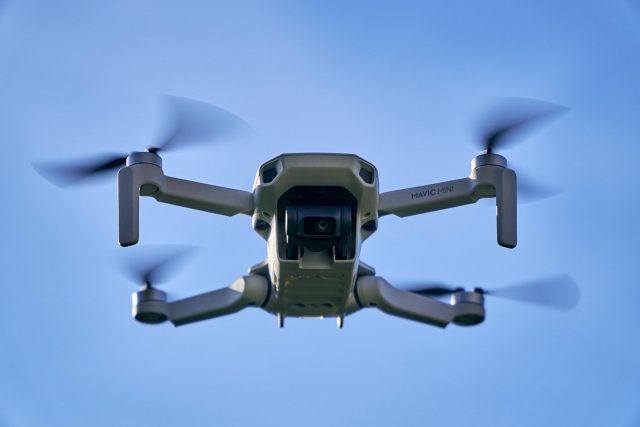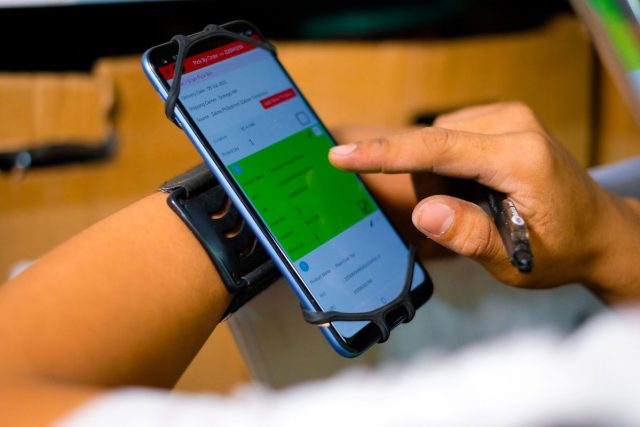WASHINGTON — The US government put investment and export restrictions on dozens of Chinese companies on Thursday, including top drone maker DJI, accusing them of complicity in the oppression of China’s Uyghur minority or helping the military, further ratcheting up tensions between the world’s top two economies.
Blaming DJI and seven other tech firms for supporting “the biometric surveillance and tracking” of Uyghurs, the US Treasury Department added them to a list of entities suspected of having Chinese military links, barring Americans from trading in their securities.
Separately, the Commerce Department added China’s Academy of Military Medical Sciences and its 11 research institutes to a trade blacklist, restricting access to US exports. It said such aid included “purported brain-control weaponry” without defining the technology further.
The department also added HMN International, formerly Huawei Marine, Jiangsu Hengtong Marine Cable Systems, Jiangsu Hengtong OpticElectric, Shanghai Aoshi Control Technology Co, Ltd, and Zhongtian Technology Submarine Cable to the list over US allegations of acquiring, or attempting to acquire, technology from the United States to help modernize the People’s Liberation Army.
The Chinese embassy in Washington called the actions “unwarranted suppression” that violated free trade rules, adding that Beijing would take “all essential measures” to uphold the interests of Chinese companies and research institutions.
“China’s development of biotechnology has always been for the well-being of mankind. The relevant claims of the US side are totally groundless,” embassy spokesman Liu Pengyu said in an email.
A DJI spokesperson declined to comment on the US announcement on Friday, but directed Reuters to the company’s statement when the US Commerce Department put it on the so-called entity list a year ago for the same reasons. That step barred it from buying or using US technology or components.
At the time, DJI said it had done nothing to justify the move and would continue to sell products in the United States.
UN experts and rights groups estimate that more than a million people, mainly Uyghurs and members of other Muslim minorities, have been detained in recent years in a vast system of camps in China’s far-west region of Xinjiang.
China denies rights abuses in Xinjiang and has pushed back against US “interference” in its affairs, vowing to protect its companies against US sanctions.
Commerce Secretary Gina Raimondo said China is choosing to use biotechnologies “to pursue control over its people and its repression of members of ethnic and religious minority groups.”
“We cannot allow US commodities, technologies, and software that support medical science and biotechnical innovation to be diverted toward uses contrary to US national security,” she said in a statement.
Thursday’s announcement coupled with last week’s investment ban on Chinese facial recognition company SenseTime could worsen already rocky relations between Beijing and Washington, despite President Joseph R. Biden, Jr.’s trying in a November virtual meeting with China’s leader Xi Jinping to establish “guardrails” to prevent the two superpowers from sliding toward conflict.
Also on Thursday, the Senate passed the Uyghur Forced Labor Prevention Act. Mr. Biden has said he will sign it into law. The bill would ban imports from China’s Xinjiang region over concerns about forced labor.
SURVEILLANCE TECHNOLOGY
The investment ban, which will also apply to Megvii Technology Limited and Cloudwalk Technology Co Ltd, was first imposed by Donald Trump’s administration and revised by Mr. Biden.
It prohibits US entities from investing in dozens of Chinese companies with alleged ties to the defense or surveillance technology sectors. It now spans dozens of companies, from China’s top chipmaker SMIC to oil producer CNOOC.
All eight companies added to the list on Thursday are already on the entity list. The list has become a go-to tool for Washington in the US-China tech feud. Suppliers to companies on the list must seek a special license from the Commerce Department to ship goods to the targeted company. The license requests face a tough standard of review.
Megvii said it opposed the US Treasury’s decision and that its inclusion on the list would not impact the company’s daily operations.
Beijing and Washington have clashed over several issues, including US criticism of China’s expanding nuclear arsenal and the Biden administration’s decision this month for US government officials to boycott the 2022 Beijing Winter Olympics over rights abuses.
China’s telecommunications equipment company Huawei Technologies was added to the entity list in 2019. Submarine cable maker HMN Technologies was added later that year.
Washington has become increasingly concerned about security threats posed by the company’s role in building undersea internet cables, which have far greater data capacity than satellites. Last year, it sent warnings to Pacific Island nations about HMN’s bid to participate in a project to improve communications in the region, Reuters reported.
Beijing says it has no intention of using cable infrastructure for spying. — Alexandra Alper and Daphne Psaledakis/Reuters













